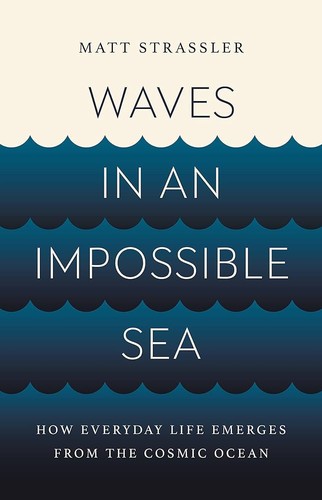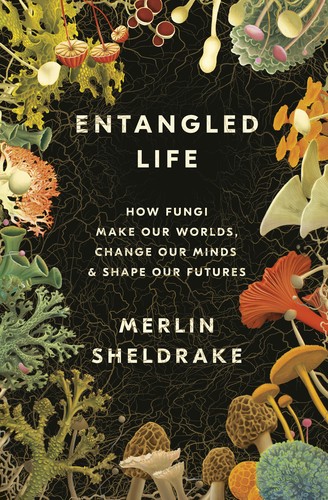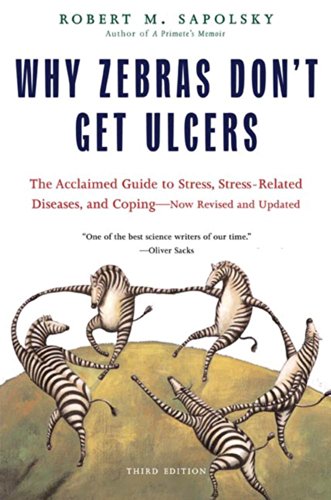An excellent breakdown.
Reviews and Comments
Autistic, anarchist, trans woman.
Mastodon: vv@solarpunk.moe
This link opens in a pop-up window
vivi finished reading The Future is Degrowth by Matthias Schmelzer

Wings by Bill Brittain
When twelve-year-old Ian grows an unsightly pair of wings, he becomes an embarrassment to his politically ambitious father and must …
vivi reviewed Trick Mirror by Jia Tolentino
Not for me
3 stars
I found this wholly uninteresting. Seemed to be very focused on celebrities and privileged life. I wasn't able to find any interesting nuance, and it didn't feel very organized or coherent to me.
I just suspect it isn't for me. It just feels very allistic in a way that is incomprehensible to me as an autistic person, I guess. I can certainly imagine it appealing to someone else.
I'm not sure what else to say because I just didn't get it at all?
vivi commented on Trick Mirror by Jia Tolentino
vivi commented on Trick Mirror by Jia Tolentino
So far this book is... Extremely straight and extremely allistic. The writer seems to be (knowingly and jadedly) tightly bound by capitalism and many toxic elements of western society in a way that I really cannot relate to. And she seems to think that it is pretty inescapable. So far I have been reading it with the interest of a somewhat bored anthropologist--in that at least I'm finding the perspective novel and different--but I'm unsure whether it is worth continuing. For now, I'll keep on reading, though.
vivi finished reading Detransition, Baby by Torrey Peters
vivi reviewed Entangled Life by Merlin Sheldrake
Great introduction to fungus!
4 stars
It was really enlightening to learn about the incredible impact that fungus has on all parts of the world.
I was especially intrigued at how plant roots and mycelium work together. It was also very surprising to hear about the impressive effects that truffles have on humans. I hadn't known that they had such an effect on people.
vivi wants to read The Reason I Jump by Naoki Higashida
vivi reviewed White Magic by Elissa Washuta
Hard to describe, but intense
5 stars
This book is a lot. It bounces all around in an attempt to compile and associate many thoughts and emotions, with many comparisons of the author's life to media. I really liked it because it felt like it was communicating something more than just words or logical sentences could about her life, her mind, her culture, etc.
Her words speak to the connections we make in our mind between various things, events we remember happening, movies we've watched, games we've played, and how we take these connections and use them to piece together a life's narrative, attempt to explain trauma, or give ourselves a reason to carry on. The book questions whether these connections are caused by something more or if they are just coincidences, and whether, in our investigations, we even want to know that answer. Is it better to be fully grounded in a world full of trauma, …
This book is a lot. It bounces all around in an attempt to compile and associate many thoughts and emotions, with many comparisons of the author's life to media. I really liked it because it felt like it was communicating something more than just words or logical sentences could about her life, her mind, her culture, etc.
Her words speak to the connections we make in our mind between various things, events we remember happening, movies we've watched, games we've played, and how we take these connections and use them to piece together a life's narrative, attempt to explain trauma, or give ourselves a reason to carry on. The book questions whether these connections are caused by something more or if they are just coincidences, and whether, in our investigations, we even want to know that answer. Is it better to be fully grounded in a world full of trauma, oppression, pain and hardship, or should we leave something of the world to mystery or mysticism?
vivi finished reading White Magic by Elissa Washuta
vivi commented on White Magic by Elissa Washuta
vivi reviewed Why Zebras Don't Get Ulcers by Robert M. Sapolsky
Informative, if occasionally flippant
3 stars
It was interesting to learn more about the science of stress. I found that Sapolsky did a good job of summarizing the complicated systems involved in our bodies when we are subjected to stress, and what experiments and studies can say about how those responses affect our health.
He also effectively expressed how the field has changed throughout scientific history and how it remains very primitive, with many aspects that remain elusive.
Despite the fact that the content should have been quite dry, his writing style presented it in a way that was more digestible.
I found that a few of his examples felt a bit insensitive as he brings up serious issues such as domestic abuse that could be traumatic to people without warning, using them as 'exaggerated examples' in an attempt to inject humor into his writing.
But besides those instances, he is mostly cautious with his words …
It was interesting to learn more about the science of stress. I found that Sapolsky did a good job of summarizing the complicated systems involved in our bodies when we are subjected to stress, and what experiments and studies can say about how those responses affect our health.
He also effectively expressed how the field has changed throughout scientific history and how it remains very primitive, with many aspects that remain elusive.
Despite the fact that the content should have been quite dry, his writing style presented it in a way that was more digestible.
I found that a few of his examples felt a bit insensitive as he brings up serious issues such as domestic abuse that could be traumatic to people without warning, using them as 'exaggerated examples' in an attempt to inject humor into his writing.
But besides those instances, he is mostly cautious with his words and attempts to be inclusive and recognize his privilege.
The penultimate chapter stands out to me. In this chapter, he brings up all the reasons why our current society is fundamentally broken when it comes to managing stress, even if systems such as socialist healthcare and other liberal policies were to be enacted. In his criticism of the current system, he falls just short of advocating for a revolution, but understandably leaves these sorts of recommendations to those with more experience in that field.
Don't dive into this book expecting it to be a self-help book or a guide on how to manage stress. Certainly there are a few suggestions in the last chapter of the book, but the real core of the book is in its description of the mechanics and causes of our stress responses and ways in which scientists have studied them.
And another content warning, the book also frequently describes what I would consider somewhat cruel lab experiments done with rats and monkeys. Such experiments don't really align with my morality so at times it was hard to stomach the fact that so many of these experiments are done.










